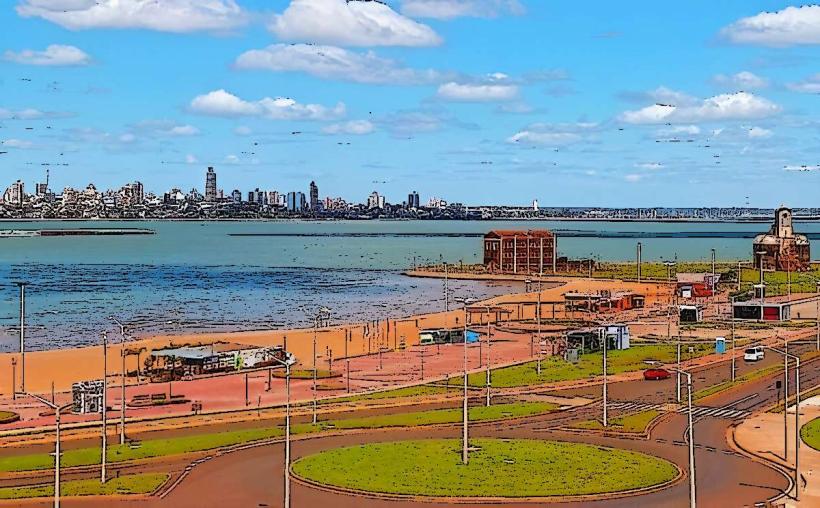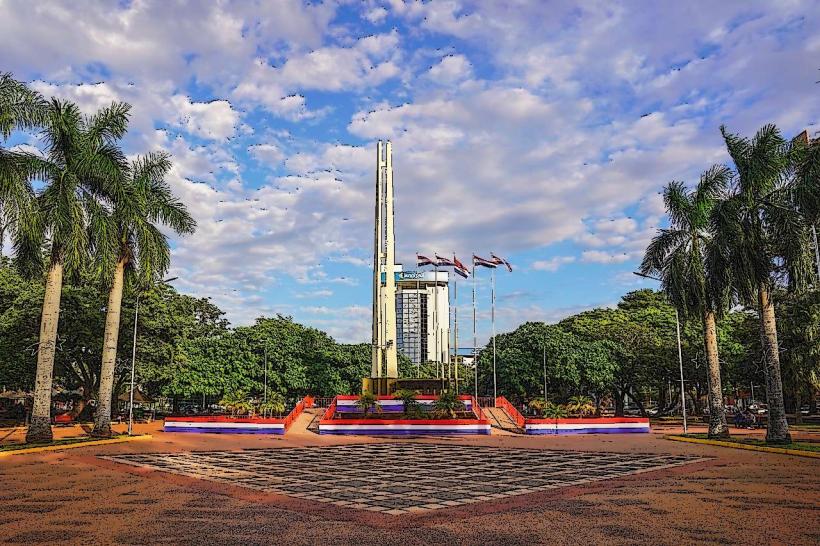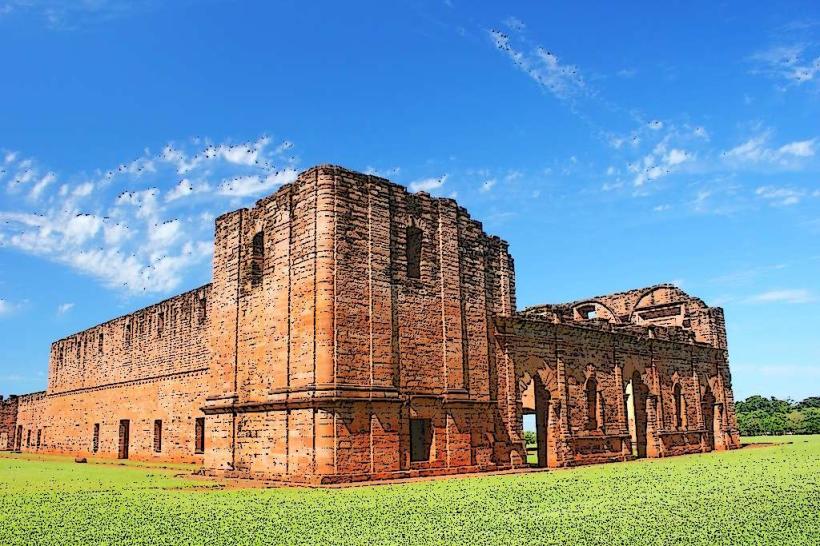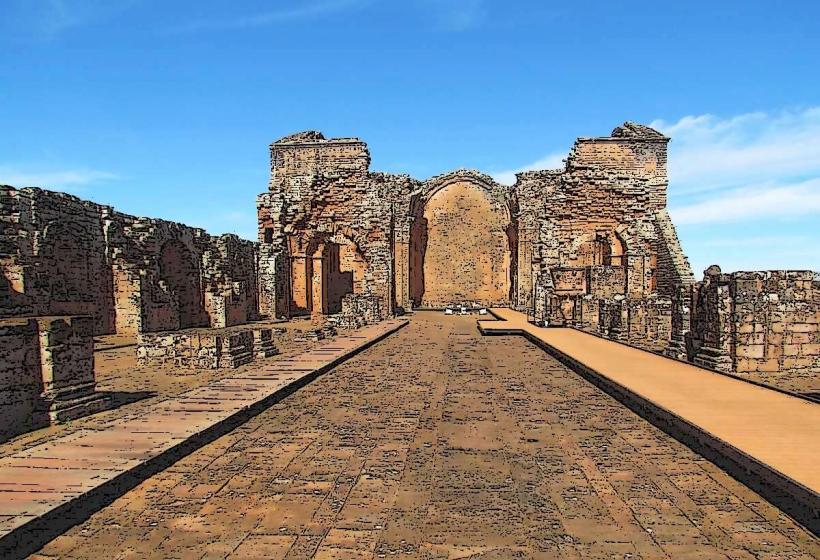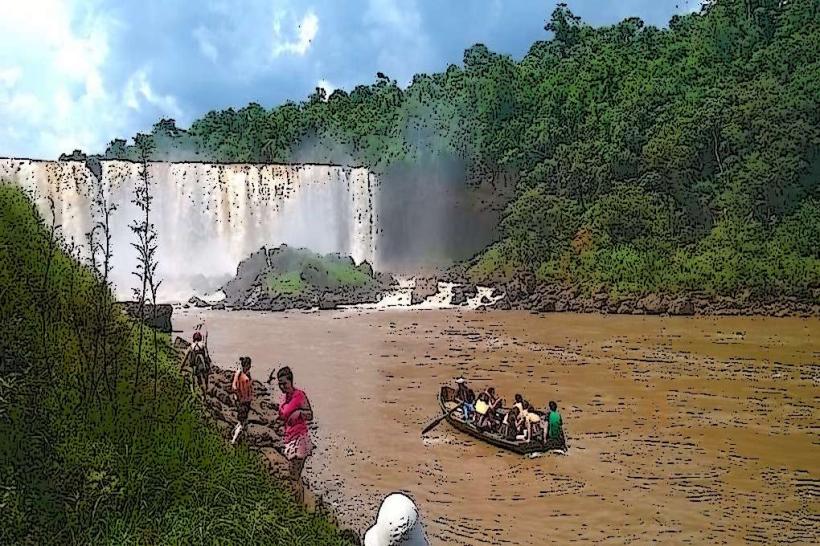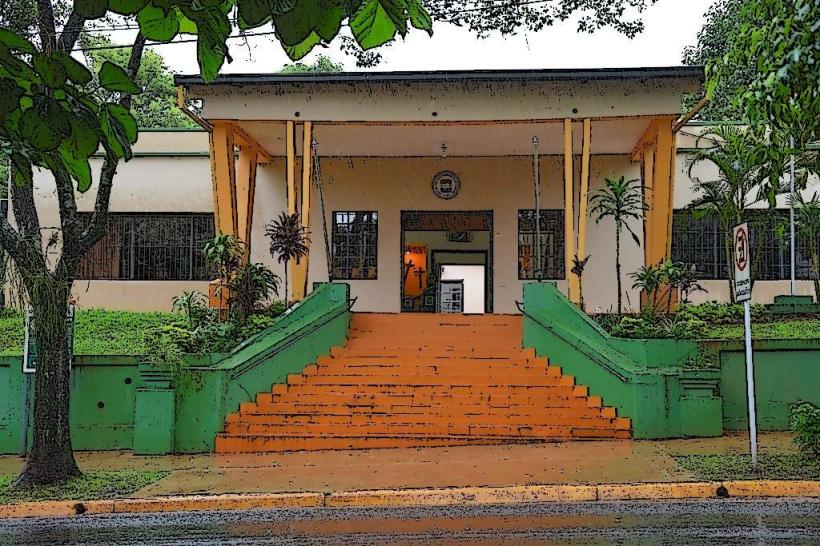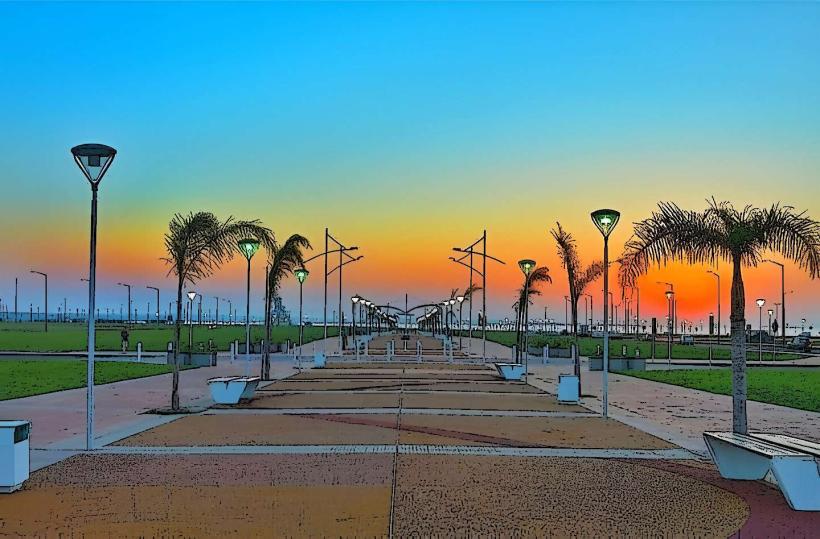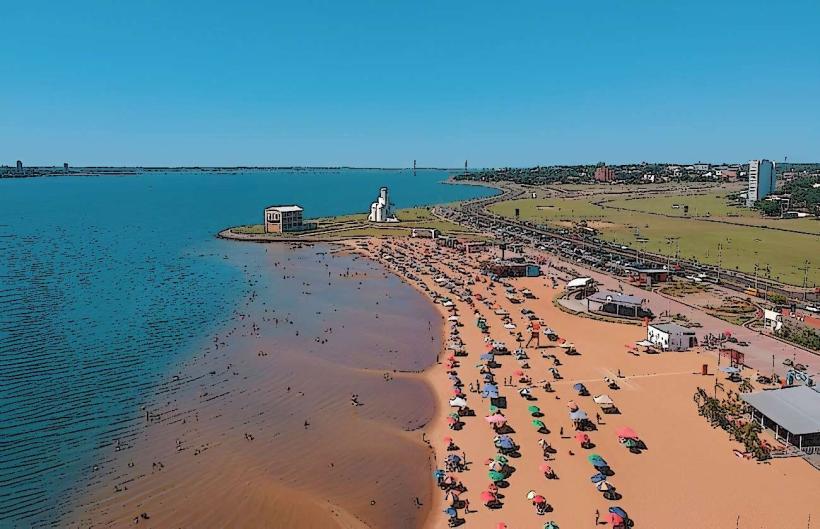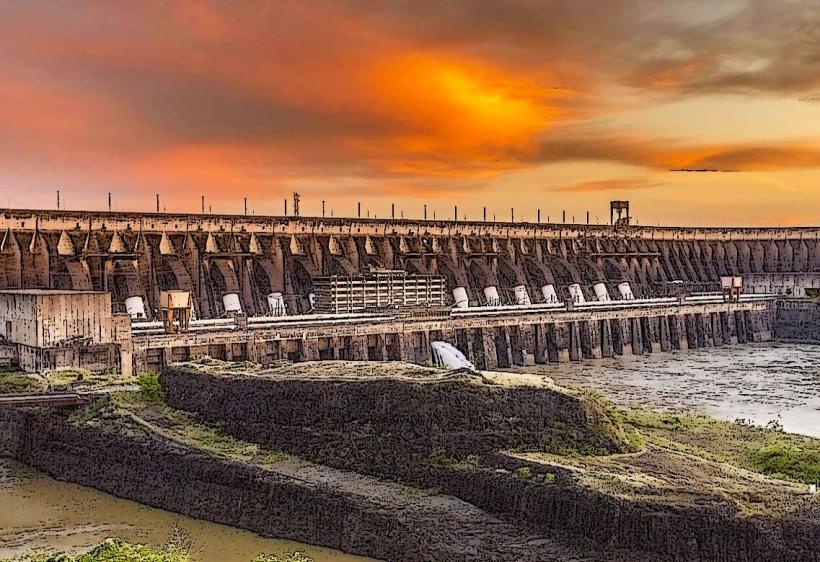Information
City: EncarnacionCountry: Paraguay
Continent: South America
Encarnacion, Paraguay, South America
Encarnación serves as the "Pearl of the South" and the capital of the Itapúa Department. Located on the right bank of the Paraná River, it is situated directly across from the Argentine city of Posadas. It functions as Paraguay's primary summer tourism destination and a critical hub for the nation's soybean and grain agribusiness.
Historical Timeline
Founded on March 25, 1615, by the Jesuit priest Roque González de Santa Cruz as a mission. The city’s modern development was defined by two major events: the 1926 Tornado, which destroyed much of the historic lower city, and the completion of the Yacyretá Dam in the 21st century. The dam’s reservoir flooded the original commercial district, leading to a total urban redesign that included the creation of a massive riverfront promenade and the relocation of thousands of residents.
Demographics & Population
The metropolitan population is approximately 230,000 as of 2026. The demographic is noted for its high percentage of descendants of European immigrants, including significant German, Ukrainian, Polish, and Japanese communities. This cultural blend is reflected in the regional architecture and agriculture.
Urban Layout & Key Districts
La Costanera: A 27 km riverfront promenade divided into sectors; it is the center of social life and recreation.
Circuito Comercial: A high-density shopping district near the international bridge, catering primarily to cross-border trade.
Centro Nuevo: The administrative and residential core moved to higher ground following the reservoir flooding.
Quiteria: A western district that hosts the city's main park and event venues.
Top City Landmarks
San José Beach: One of the most popular river beaches in the Southern Cone, featuring white sand and modern amenities.
San Roque González de Santa Cruz Bridge: A 2.5 km international cable-stayed bridge connecting to Argentina.
The Sambadrome: A permanent outdoor stadium built for the Carnaval Encarnaceno, the largest carnival in Paraguay.
Plaza de Armas: The city’s central park, known for its diverse flora and Japanese garden section.
Mill and Silo: Preserved industrial structures from the early 20th century that serve as cultural monuments on the waterfront.
Transportation Network
Train: An international passenger rail service connects Encarnación to Posadas (Argentina) in under 10 minutes.
Bus: The city is a major transit node on National Route 1 (to Asunción) and Route 6 (to Ciudad del Este).
Ride-sharing: Uber and Bolt are the dominant and safest transit options.
River: Small passenger boats (lanchas) operate between the two riverbanks, though the train and bridge are more common.
Safety & "Red Zones"
Safety Profile: Encarnación is generally considered the safest major city in Paraguay.
Red Zones: Use caution in the Circuito Comercial after business hours (after 4:00 PM), as the area becomes desolate and is prone to petty theft.
Precautions: Standard urban vigilance is sufficient in the beach and promenade areas.
Digital & Financial Infrastructure
Average internet speed is 80 Mbps. 5G is available along the Costanera and in the central district. The city is a major center for currency exchange; Mercado Pago (via Argentine links) and local Bancard systems are universal.
Climate & Air Quality
Humid subtropical climate. Temperatures range from 10°C to 22°C in winter and 25°C to 38°C in summer. High humidity is constant. Air quality is high due to the vast surface area of the Paraná River and low industrial density.
Culture & Social Norms
The city is famous for the Carnaval Encarnaceno (January/February). Tipping is 10%. A unique social norm is the influence of German and Slavic traditions on local cuisine, often served alongside Guaraní staples like chipá.
Accommodation Zones
Costanera / Beach Front: Recommended for tourists and leisure travelers.
Centro: Recommended for business and administrative travelers.
Local Cost Index
1 Espresso: 12,000 PYG ($1.60 approx.)
1 Standard Lunch: 50,000 PYG ($6.50)
1 International Train Ticket: 15,000 PYG ($2.00)
1 Taxi/Uber (5km): 30,000 PYG ($4.00)
Nearby Day Trips
Jesuit Missions of La Santísima Trinidad and Jesús de Tavarangue: UNESCO World Heritage sites located 30 km from the city.
Hohenau, Obligado, and Bella Vista: The "United Colonies," famous for German heritage and yerba mate production.
San Cosme y Damián: Known for its Jesuit mission and the "Dunas de San Cosme" (sand dunes) in the middle of the river.
Facts & Legends
A prominent legend involves the "Ka'a Jarýi," the protective spirit of the yerba mate plantations. A verified historical oddity is that the city’s waterfront was entirely artificial, constructed to prevent the rising waters of the Yacyretá Dam from submerging the city. Another fact: Encarnación is known as the "National Capital of Summer" because of its high-volume seasonal tourism.

